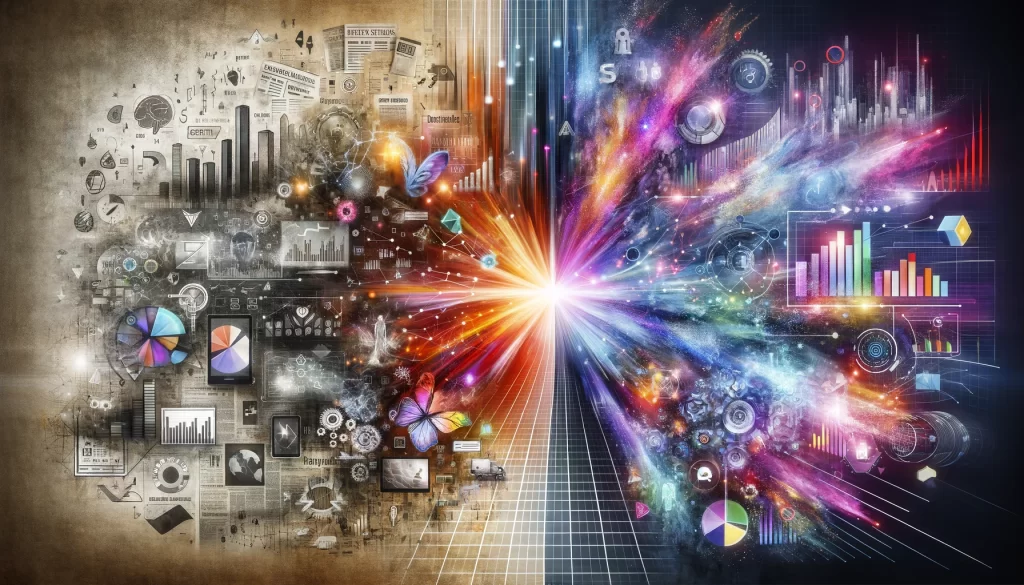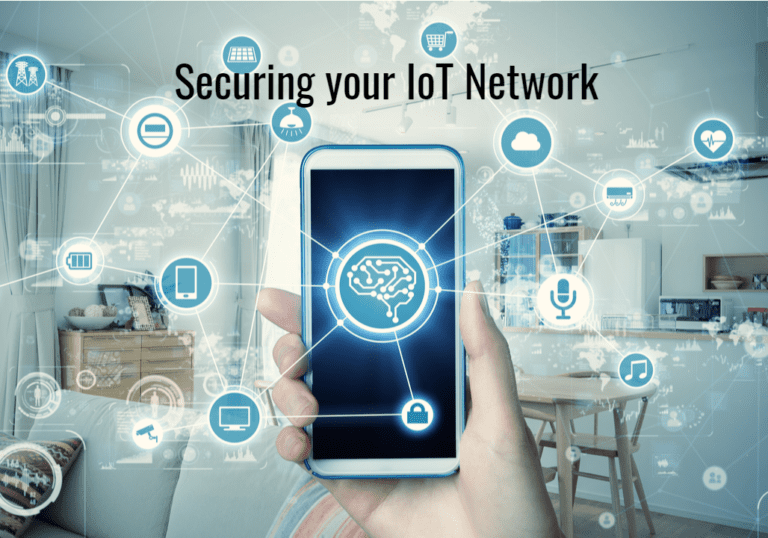The Game Changer: How AI is Transforming Digital Marketing Strategies
Greetings to all! It is widely acknowledged that the digital marketing industry is undergoing continual transformation. However, it is imperative to address a significant development that has emerged at the forefront: Artificial Intelligence (AI). Far from being merely a buzzword, AI is fundamentally altering the digital marketing paradigm, enhancing intelligence, efficiency, and even human-like interactions within the field. Therefore, I invite you to accompany me as we explore the profound impact AI is having on our professional landscape, perhaps with a beverage of your choice in hand.

The Advent of AI in Digital Marketing
Remember the days of manually combing through data and making educated guesses? Those days are becoming ancient history, thanks to AI. With technologies like Machine Learning (ML) and Natural Language Processing (NLP), AI is giving us insights and automation capabilities that were once the stuff of sci-fi.
Personalization at Scale
AI-powered analytics are at the heart of understanding customer behavior like never before. Tools like Adobe Sensei and Google Analytics’ AI enhancements are helping brands analyze data at an unprecedented scale, offering hyper-personalized content recommendations and marketing messages to individual customers based on their behavior and preferences.
Enhanced Customer Interactions
Chatbots and virtual assistants, powered by AI, are now capable of providing 24/7 customer service that’s both efficient and surprisingly human. Intercom and Drift are perfect examples of platforms that use AI to enhance customer interactions, making sure your customers feel heard and helped, anytime and anywhere.
Optimized Advertising with AI
When it comes to advertising, AI is a game changer. Platforms like Facebook and Google Ads use AI algorithms to analyze millions of data points, ensuring your ads reach your most promising prospects. Plus, tools like Albert can autonomously optimize your ad campaigns in real-time, squeezing the most out of every marketing dollar for an unbeatable ROI.
Content Creation and Curation
Yes, AI can even help with content creation and curation. Tools like OpenAI’s GPT-3 for writing assistance and Canva’s Magic Write for design suggestions are revolutionizing the way we create engaging content. These AI-powered assistants help generate ideas, draft content, and even predict what type of content will resonate most with your audience.
Predictive Analytics and Decision Making
AI makes future predictions in addition to historical analysis. With predictive analytics tools like Salesforce Einstein, marketers can forecast trends, customer behaviors, and potential market shifts. This insight allows for more informed decision-making and strategy development, giving businesses a competitive edge.
Challenges and Ethical Considerations
With great power comes great responsibility. As we embrace AI, we must also navigate the challenges it brings, such as privacy concerns and data security. Ethical considerations are paramount, and marketers must use AI transparently and responsibly, ensuring customers’ trust and compliance with regulations.
AI Tools for Enhanced Personalization
Adobe Sensei: Think of it as your digital marketing sensei, using AI and machine learning to deliver real-time personalization, automate targeted content, and maximize media performance. It’s like having a wise mentor but for your digital content strategy.
Optimizely: With its AI-powered optimization, you can run experiments on your website’s design and content to discover what truly resonates with your audience. It’s like the scientific method, but for boosting your conversion rates.
Chatbots and Customer Service
Intercom: This platform uses AI to provide personalized messaging and automated customer support. It’s like having a helpful robot assistant who never sleeps, ensuring your customers always have someone to talk to.
ManyChat: Focused on Facebook Messenger, this tool uses AI to create engaging chatbot conversations. It’s perfect for businesses looking to automate their social media interactions without losing that personal touch.
AI in Advertising
Albert: An autonomous digital marketing platform that handles your ad campaigns from start to finish. Imagine a marketing expert who works 24/7, optimizing your ads in real time for peak performance.
Google Ads AI: Google has integrated AI into its advertising platform to help you identify the best keywords, predict click-through rates, and optimize your bids. Content Creation with AI
OpenAI’s ChatGPT: This revolutionary AI can assist in generating creative content, from blog posts to engaging social media updates. It’s like collaborating with a highly creative co-writer who’s fluent in the language of your audience.
Canva’s Magic Write: Embedded in the popular design platform, this feature uses AI to help generate design-related content and suggestions, making it easier for non-designers to create stunning visuals. Think of it as having a design tutor at your fingertips.
Predictive Analytics
Salesforce Einstein: Salesforce’s AI layer provides predictive analytics, helping businesses anticipate customer needs and make smarter decisions. It’s akin to having a fortune teller, but for predicting your customers’ next moves.
These tools represent just the tip of the AI iceberg in digital marketing. Each one offers a unique way to automate processes, understand and interact with customers, and create content that captures the imagination. By integrating these AI tools into your strategy, you’re not just keeping up with the times; you’re setting the pace. Welcome to the era of intelligent marketing, where AI is your co-pilot in navigating the digital landscape.
How AI Will Disrupt Digital Marketing Strategy
As we navigate the digital marketing ocean, AI is the tidal wave disrupting the status quo, reshaping strategies in profound ways. It’s not just about automating tasks or analyzing data; AI is rewriting the rulebook on how we engage with consumers, understand their journeys, and deliver personalized experiences. Let’s break down the key disruptions:

Shifting from Segment to Individual
Traditional marketing often segments audiences based on demographics, interests, or behaviors. AI, however, takes this a step further by enabling micro-targeting and individualized marketing at scale. This means crafting marketing messages so personalized, they feel like they were written for one person, not thousands. Tools like Adobe Sensei are making this a reality by analyzing user data in real time to deliver highly personalized content and recommendations.
Predictive Customer Journeys
AI is transforming how we predict and respond to customer behaviors. With predictive analytics, we’re not just reacting; we’re anticipating. By understanding past behaviors, AI can forecast future actions, allowing marketers to tailor strategies that meet customers at every point of their journey. Salesforce Einstein is a pioneer in this realm, offering insights that help businesses stay two steps ahead of their customers’ needs.
Revolutionizing Content Creation
The era of AI-generated content is upon us. Tools like OpenAI’s ChatGPT and Canva’s Magic Write are disrupting the traditional content creation process, enabling marketers to produce content faster and more efficiently. This AI-powered content is not just about speed; it’s about relevance and personalization. AI can analyze what content performs best and suggest new content that is more likely to engage and convert.
Real-Time Optimization and Decision-Making
In the fast-paced digital world, the ability to make quick decisions is crucial. AI’s real-time data analysis and decision-making capabilities are transforming digital marketing strategies from a set-it-and-forget-it approach to a dynamic, continually optimizing process. Platforms like Albert and Google Ads AI ensure that marketing efforts are constantly adjusted based on performance data, ensuring maximum efficiency and effectiveness.
Ethical and Privacy Considerations Take Center Stage
As AI becomes more ingrained in digital marketing, ethical and privacy considerations are coming to the forefront. Marketers must navigate the fine line between personalization and privacy, ensuring that AI tools are used responsibly. This shift towards ethical AI use will redefine strategies, prioritizing transparency, consent, and customer trust above all.
The Future of AI in Digital Marketing
The AI revolution in digital marketing is just getting started. Emerging trends like AI-powered voice search optimization and augmented reality (AR) experiences are setting the stage for an even more immersive and interactive customer journey.
As AI continues to evolve, so too will the digital marketing landscape. Staying ahead means staying informed, experimenting with new AI tools, and always keeping the customer experience at the heart of what we do.
In conclusion, AI is not just transforming digital marketing; it’s redefining it. As marketers, our task is to harness the power of AI to create more personalized, efficient, and impactful marketing strategies. The future is here, and it’s AI-powered. So, let’s embrace it, innovate with it, and use it to craft the kind of marketing that not only sells but also serves. Welcome to the future of digital marketing—it’s bright, and it’s driven by AI.





